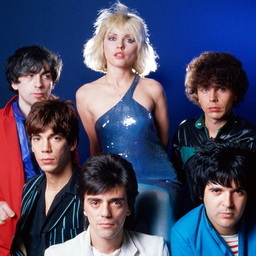New Wave Music
During the late '70s and early '80s, New Wave was a catch-all term for the music that directly followed punk rock; often, the term encompassed punk itself, as well. In retrospect, it became clear that the music following punk could be divided, more or less, into two categories - post-punk and new wave. Where post-punk was arty, difficult, and challenging, new wave was pop music, pure and simple. It retained the fresh vigor and irreverence of punk music, as well as a fascination with electronics, style, and art. Therefore, there was a lot of stylistic diversity to new wave. It meant the nervy power pop of bands like XTC and Nick Lowe, but it also meant synth rockers like Gary Numan or rock revivalists like Graham Parker and Rockpile. There were edgy new wave songwriters like Elvis Costello, pop bands like Squeeze, tough rock & rollers like the Pretenders, pop-reggae like the Police, mainstream rockers like the Cars, and ska revivalists like the Specials and Madness. As important as these major artists were, there were also countless one-hit wonders that emerged during early new wave. These one-hit groups were as diverse as the major artists, but they all shared a love of pop hooks, modernist, synthesized production, and a fascination for being slightly left of center. By the early '80s, new wave described nearly every new pop/rock artist, especially those that used synthesizers like the Human League and Duran Duran. New wave received a boost in the early '80s by MTV, who broadcast endless hours of new wave videos in order to keep themselves on the air. Therefore, new wave got a second life in 1982, when it probably would have died out. Instead, 1982 and 1983 were boom years for polished, MTV-radio new wave outfits like Culture Club, Adam Ant, Spandau Ballet, Haircut 100, and A Flock of Seagulls. New wave finally died out in 1984, when established artists began to make professional videos and a new crop of guitar-oriented bands like the Smiths and R.E.M. emerged to capture the attention of college-radio and underground rock fans. Nevertheless, new wave proved more influential than many of its critics would have suspected, as the mid-'90s were dominated by bands - from Blur to Weezer - that were raised on the music.







